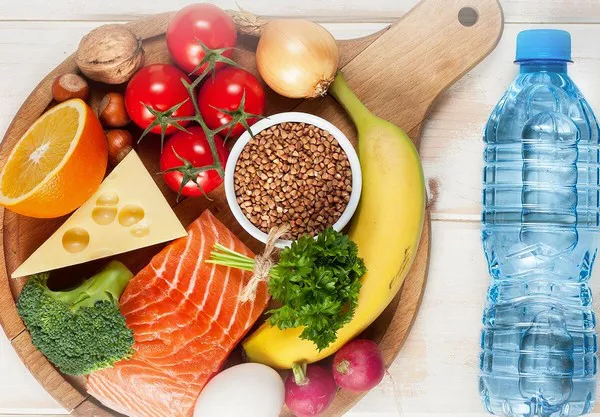In the labyrinth of health and wellness, the role of vitamins is paramount. These micronutrients play a crucial role in maintaining various physiological functions, supporting overall well-being. However, the question often arises: what vitamins should I take daily? This article serves as a comprehensive guide, exploring the essential vitamins, their functions, dietary sources, and considerations for daily supplementation.
Understanding the Basics
Vitamins are organic compounds that the body requires in small amounts to function properly. These micronutrients are vital for various physiological processes, including metabolism, immune function, and cellular repair. Vitamins are broadly categorized into water-soluble (such as vitamin C and B-complex vitamins) and fat-soluble (including vitamins A, D, E, and K).
Each vitamin plays a unique role, acting as a cofactor or catalyst in enzymatic reactions that drive essential biological functions. While a well-balanced diet can provide many vitamins, certain factors, such as dietary restrictions, lifestyle choices, or specific health conditions, may necessitate supplementation.
Vitamin A
Vitamin A is essential for maintaining healthy vision, skin, and immune function. It exists in two forms: preformed vitamin A (found in animal products) and provitamin A (found in plant-based foods as carotenoids, including beta-carotene). Vitamin A is crucial for the production of rhodopsin, a pigment necessary for low-light and color vision.
While sources of vitamin A include liver, fish, and dairy products, beta-carotene-rich vegetables such as carrots, sweet potatoes, and spinach provide provitamin A. Daily intake recommendations vary by age and gender, and supplementation is often recommended for individuals at risk of deficiency, such as those with certain medical conditions or dietary restrictions.
Vitamin B-Complex
The B-complex vitamins, including B1 (thiamine), B2 (riboflavin), B3 (niacin), B5 (pantothenic acid), B6 (pyridoxine), B7 (biotin), B9 (folate), and B12 (cobalamin), collectively play crucial roles in energy metabolism, nerve function, and red blood cell formation. These water-soluble vitamins are integral for converting food into energy and supporting the health of the nervous system.
B-complex vitamins are found in a variety of foods, including whole grains, meat, dairy products, and leafy greens. While a balanced diet typically provides adequate B vitamins, certain populations, such as vegetarians, older adults, and individuals with malabsorption issues, may benefit from supplementation. A B-complex supplement can offer a convenient way to ensure sufficient intake of these essential nutrients.
Vitamin C
Vitamin C, also known as ascorbic acid, is renowned for its antioxidant properties and its role in collagen synthesis. As an antioxidant, vitamin C helps neutralize free radicals, protecting cells from oxidative stress and supporting immune function. Additionally, it plays a crucial role in the formation of collagen, a protein essential for skin, blood vessels, bones, and connective tissues.
Citrus fruits, strawberries, bell peppers, and broccoli are rich dietary sources of vitamin C. While obtaining vitamin C through a well-rounded diet is optimal, certain individuals, such as smokers or those with limited access to fresh produce, may consider vitamin C supplementation. Regular intake, whether through diet or supplements, contributes to overall health and well-being.
Vitamin D
Vitamin D, often referred to as the “sunshine vitamin,” is critical for bone health as it facilitates the absorption of calcium and phosphorus. The skin produces vitamin D when exposed to sunlight, but factors such as geographical location, seasonal variations, and sunscreen use can affect natural synthesis. Dietary sources of vitamin D include fatty fish, fortified dairy products, and egg yolks.
For individuals with limited sun exposure or specific risk factors, such as older adults or those with darker skin, supplementation may be recommended. Vitamin D deficiency can lead to bone-related issues, making it crucial to ensure adequate intake. Regular monitoring of vitamin D levels, especially in high-risk populations, guides appropriate supplementation.
Vitamin E
Vitamin E comprises a group of fat-soluble antioxidants, including tocopherols and tocotrienols, known for their protective role against oxidative damage. Vitamin E supports immune function and acts as a shield for cell membranes, preventing damage from free radicals. Nuts, seeds, vegetable oils, and leafy greens are excellent dietary sources of vitamin E.
While deficiency is rare, individuals with certain medical conditions or those with fat malabsorption issues may benefit from vitamin E supplementation. It’s important to note that excessive intake of vitamin E through supplements can lead to adverse effects, emphasizing the importance of obtaining nutrients through a balanced diet whenever possible.
Vitamin K
Vitamin K plays a pivotal role in blood clotting (coagulation) and bone metabolism. There are two main forms of vitamin K: K1 (phylloquinone), found in green leafy vegetables, and K2 (menaquinone), found in fermented foods and animal products. Vitamin K is essential for the synthesis of clotting factors and proteins that regulate calcium in bones and tissues.
While vitamin K deficiency is uncommon, certain medical conditions or medications may affect its absorption. Individuals on anticoagulant medications, for example, may need to monitor their vitamin K intake. A well-balanced diet that includes leafy greens and other vitamin K-rich foods is generally sufficient to meet daily requirements.
Considering a Multivitamin
While obtaining vitamins from a diverse and nutrient-rich diet is ideal, the realities of modern lifestyles, dietary preferences, and specific health conditions may necessitate additional support. Multivitamin supplements offer a convenient way to cover potential nutrient gaps and ensure a baseline of essential vitamins.
A quality multivitamin typically includes a spectrum of vitamins and minerals in balanced proportions. It serves as a nutritional safety net, particularly for individuals with dietary restrictions, limited access to diverse foods, or increased nutrient needs due to factors such as pregnancy or intense physical activity. However, it’s essential to choose a multivitamin that aligns with individual health goals and consult with a healthcare professional if there are specific concerns or conditions.
Individualizing Supplementation
Individual nutritional needs vary based on factors such as age, gender, health status, and lifestyle. Customizing vitamin supplementation to align with these unique factors ensures targeted support for optimal health. Here are some considerations for tailoring vitamin intake:
Life Stage and Age: Different life stages have distinct nutritional requirements. Infants, children, adolescents, adults, and older adults may have varying needs for specific vitamins. For example, pregnant or lactating individuals may require additional folic acid, iron, and other nutrients to support maternal and fetal health.
Health Conditions: Certain health conditions may impact nutrient absorption or increase the body’s demand for specific vitamins. Individuals with conditions such as celiac disease, inflammatory bowel disease, or metabolic disorders may need tailored supplementation to address potential deficiencies.
Dietary Patterns: Dietary preferences, restrictions, or specific eating patterns, such as vegetarian or vegan diets, may influence vitamin intake. Individuals following restrictive diets may benefit from targeted supplementation to ensure they meet their nutritional needs.
Geographical Factors: Geographical location and climate can affect sun exposure, impacting natural vitamin D synthesis. Those residing in regions with limited sunlight during certain seasons may need to consider vitamin D supplementation, especially during winter months.
Physical Activity Levels: Intense physical activity can increase nutrient requirements, particularly for vitamins involved in energy metabolism and muscle function. Athletes or individuals engaged in regular exercise may require additional support to meet these heightened demands.
Stress and Lifestyle: Stress, both physical and emotional, can influence nutrient utilization and requirements. Individuals with high-stress lifestyles or demanding occupations may consider supplementation to support overall well-being.
Cautionary Notes: Balancing Benefits and Risks
While vitamins play a crucial role in health, it’s important to approach supplementation with a balanced perspective. More is not always better, and excessive intake of certain vitamins can lead to adverse effects. Here are some key considerations:
Upper Limits: Vitamins have established upper limits, beyond which their intake may lead to toxicity. Excessive intake of fat-soluble vitamins (A, D, E, K) can accumulate in the body, potentially causing adverse effects. Water-soluble vitamins (B-complex vitamins, vitamin C) are generally excreted in urine, but excessive intake can still lead to adverse reactions.
Individual Variability: Individual responses to vitamins can vary. Factors such as genetics, health status, and medications can influence how the body absorbs, utilizes, and eliminates vitamins. Consulting with a healthcare professional ensures a personalized approach to supplementation.
Interactions with Medications: Certain vitamins can interact with medications, affecting their absorption or efficacy. For example, vitamin K can interfere with blood-thinning medications, while vitamin C may enhance the absorption of iron. It’s crucial to inform healthcare providers about all supplements being taken to avoid potential interactions.
Whole Foods vs. Supplements: While supplements offer convenience, whole foods provide a spectrum of nutrients along with fiber and other beneficial compounds. Whenever possible, obtaining vitamins from a varied and nutrient-dense diet is recommended. Supplements should complement, not replace, a healthy eating pattern.
Closing Thoughts
In the quest for optimal health, vitamins play a starring role, contributing to diverse physiological functions that sustain life. The journey to determining what vitamins to take daily involves a nuanced understanding of individual needs, dietary patterns, and lifestyle factors. Striking a balance between obtaining nutrients from whole foods and judicious supplementation ensures a holistic approach to nutrient health.
As with any aspect of health, consulting with a healthcare professional is paramount. Individualized guidance based on health status, medical history, and specific goals ensures that vitamin intake aligns with overall well-being. Whether obtained through a rainbow of fruits and vegetables or encapsulated in a daily supplement, the right balance of vitamins lays the foundation for a vibrant and thriving life.
[inline_related_posts title=”You Might Be Interested In” title_align=”left” style=”list” number=”6″ align=”none” ids=”3143,3141,3139″ by=”categories” orderby=”rand” order=”DESC” hide_thumb=”no” thumb_right=”no” views=”no” date=”yes” grid_columns=”2″ post_type=”” tax=””]

































